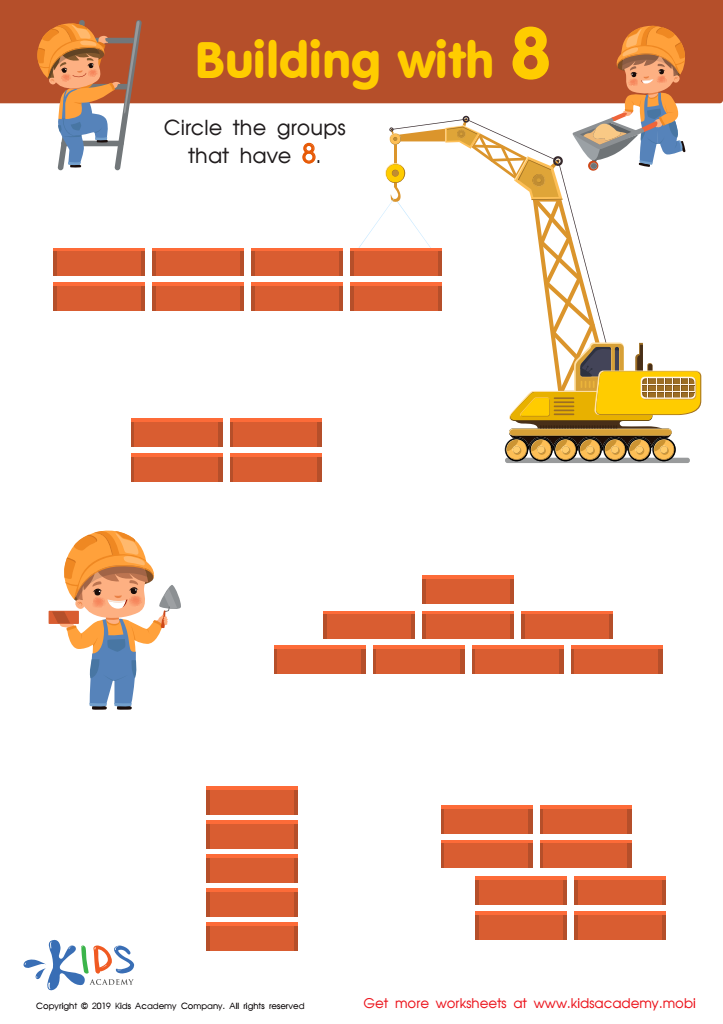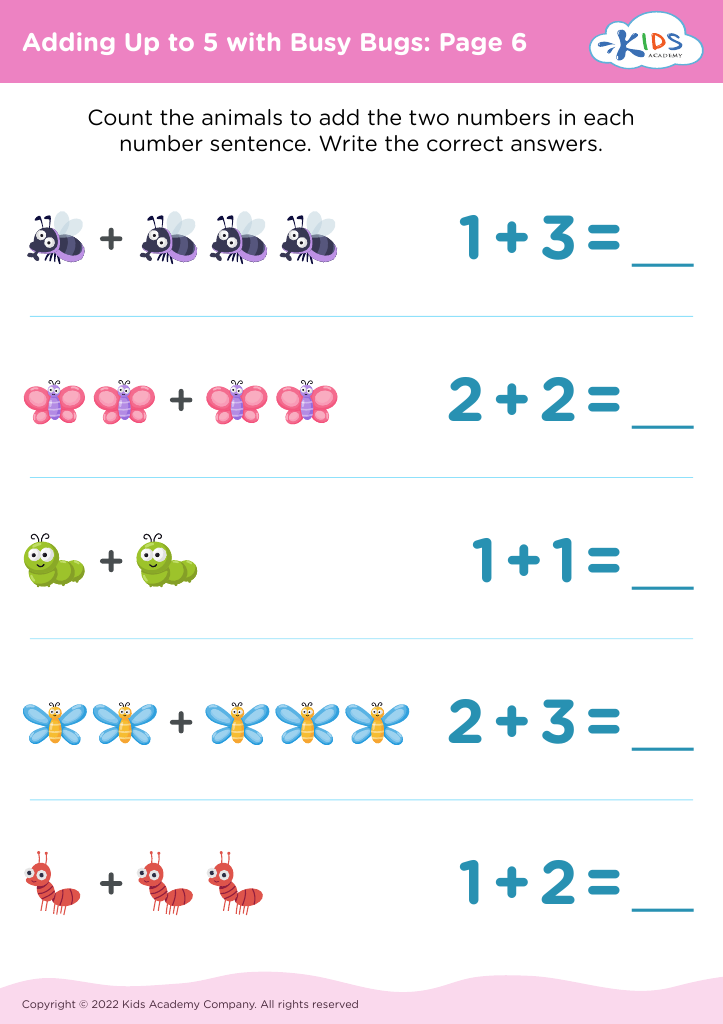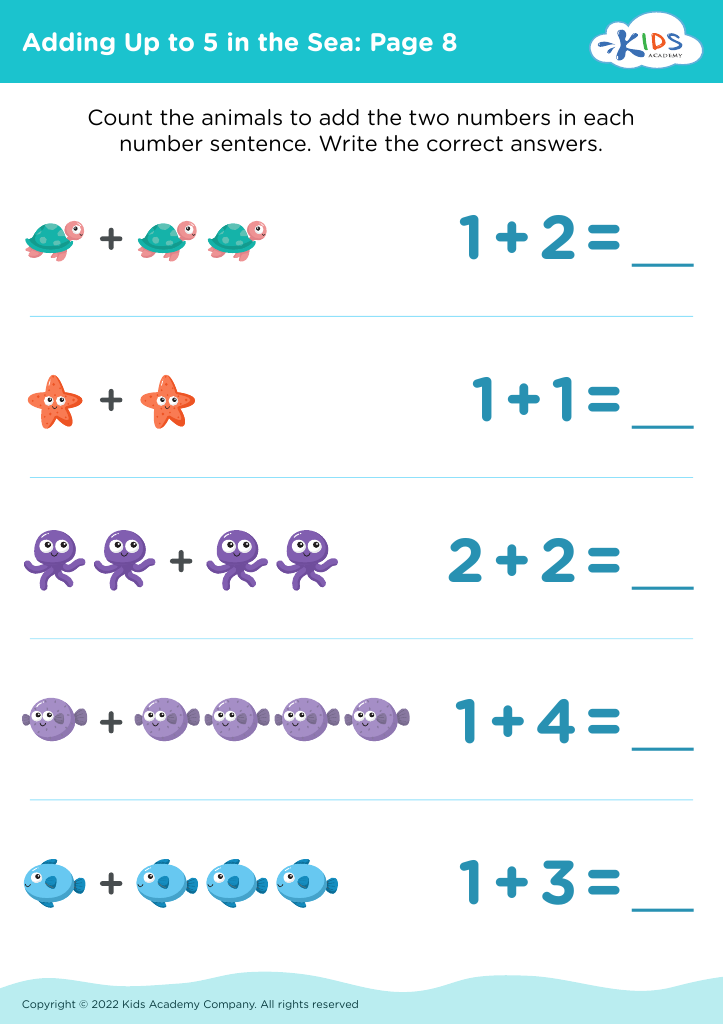Basic arithmetic comprehension Addition Worksheets for Ages 5-8
3 filtered results
-
From - To
Discover engaging Basic Arithmetic Comprehension Addition Worksheets for children ages 5-8, designed to enhance early mathematical skills. Our thoughtfully crafted worksheets provide a fun and interactive approach to learning addition, helping kids grasp fundamental concepts through relatable activities and visual aids. With various difficulty levels, these worksheets cater to different learning paces, promoting independent problem-solving and critical thinking. Ideal for at-home practice or classroom use, our resources support children's cognitive development while nurturing a love for math. Explore our collection today and empower young learners to build a strong foundation in arithmetic that will benefit their future academic journey!


Building with 8 Worksheet
Basic arithmetic comprehension, particularly addition, is fundamental for children aged 5-8 as it lays the groundwork for future mathematical skills and everyday problem-solving abilities. This period is crucial for cognitive development, where children begin to understand numbers and their relationships. Mastering addition not only enhances numerical fluency but also boosts confidence, as students successfully solve problems and engage in interactive learning.
Parents and teachers should prioritize addition comprehension because it fosters critical thinking and analytical skills. Strong foundations in basic math contribute to gaining proficiency in more complex mathematical concepts later on, such as subtraction, multiplication, and division. Furthermore, addition is often integrated into daily life scenarios, such as budgeting allowance or working with measurements in cooking, making it relevant and practical.
Engaging children in addition through games, stories, and hands-on activities can enhance their learning experience and make math enjoyable. Early success in math is linked to a positive attitude towards the subject throughout schooling. Thus, parents and teachers hold the responsibility to create a supportive environment that nurtures arithmetic skills, ensuring that children are not just learners of math but also confident problem solvers who can approach academic and real-world challenges effectively.
 Assign to My Students
Assign to My Students





















